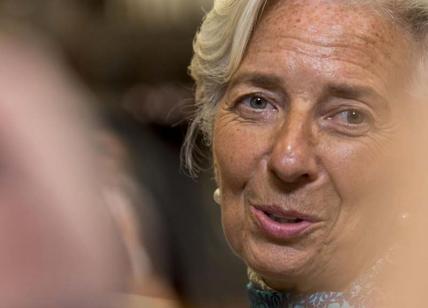
->
Italy remains in deflation zone , with prices in July confirmed negative. And since it is not ‘the only country in the eurozone to flirt with a deflationary scenario, touch’ again to the ECB move; now expects it also International Monetary Fund . The photograph taken by Istat, for the truth ‘, not’ dramatic. Prices are in annual drop of 0.1% in July, but it’s better than the previous month (-0.4%) and compared to more ‘alarming -0.5% in April. The ‘shopping’ monitored by the Statistical spending – which in fact confirms the preliminary figures – marks a + 0.4%, accelerating from 0.2% in June.
But Mario dragons and his economists, and ‘only the last piece of a picture that is emerging from several months. Despite the impact of the ‘Brexit’ remained quite low, and past the obstacle not just the bank stress tests, the Eurozone economy continues with an average of weak recovery and inflation appears far from the objectives of the Eurotower , who already ‘have been shifted to 2018 the return objective of 2% prices. If France and Germany hold, Spain (which will publish ‘tomorrows data) and’ waiting for deflation to -0.6%). And to make matters worse there is ‘the price of oil back down after the recent recovery, with 13% in little more’ than a month, putting a question mark on an inflation forecast that was gradually strengthening .
For those of private sector economists, and ‘clear that dragons must’ put his hand to quantitative easing, purchases of securities (mostly government) started in 2015 and so far intended to reach 1,700 billion euro. An expansion that probably will not come ‘on September 8, when he returns to meet the ECB advice on monetary policy. But that is likely to arrive later this year, probably in the form of a new postponement of the deadline Qe, hitherto fixed in September 2017, and with the possibility ‘of a further acceleration of monthly financial asset purchases (they were parties to 60 billion Euros per month and this year rose to 80 billion).
As likeminded in international financial circles – with the Eurozone which is not ‘not even the main problem, given that Japan and’ risprofondato in deflation despite stellar purchases of debt – and ‘quite clear from an article on the IMF blog, written by two economists, Andy Jobst and Huidan Lin: “further rate cuts could weaken the effectiveness of monetary policy” (our thoughts turn to European banks reeling and are seen to hit the margins of interest). And then, “looking ahead, the ECB may have to rely more on more ‘asset purchases.” New negotiations expect Draghi, with the Germans maldipancia on Qe destined to resurface: more and more ‘reason economists, given the wide unavailability’ of German securities whose yields fell too, if it is not appropriate to buy more ” paper ‘Italian , or Spanish, giving up the rule that wants the Q and proportioned to the ‘capital key’, the share of each country in the ECB’s capital.
->
No comments:
Post a Comment